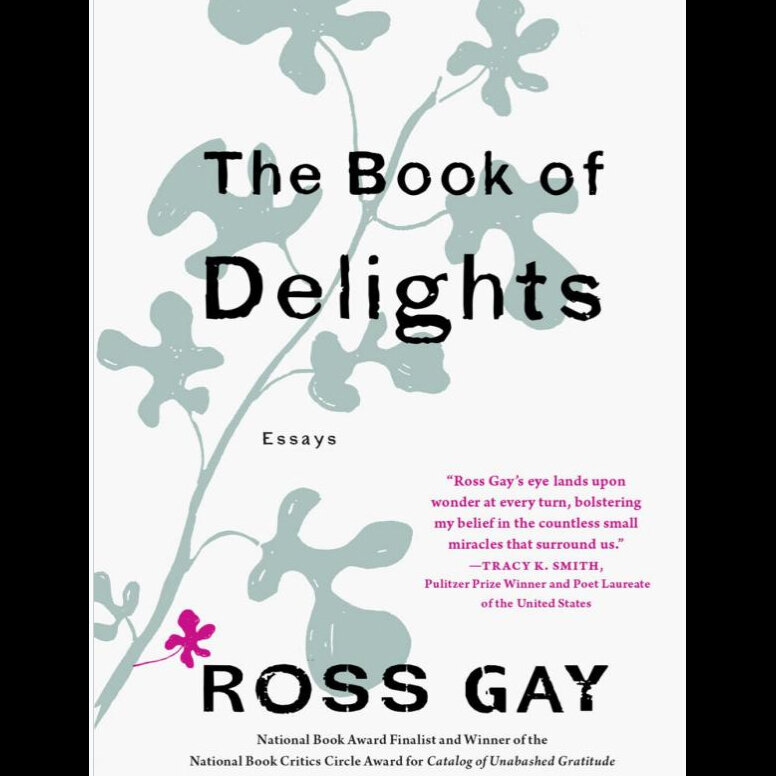Ross Gay defies genre to craft essays that speak truth to shared experiences of life in The Book of Delights
Review by Margaret Smith
Ross Gay, known for capturing the joyful experiences of life as well as the sometimes painful, debuts 102 new instances of the like in his collection of essays, which spans the time of a single year, “The Book of Delights.” Always choosing to see the delight in what can be masqueraded as sorrow, Gay spins words into short, fully realized moments that often don’t last more than two pages.
Always capturing life as it happens, Gay launches the anthology of essays with the line “It’s my forty-second birthday.” In every endeavor in this quaint collection, he takes us with him moment-to-moment—from his garden to the local woods of childhood, from the sidewalk of Trump Towers to his humble home. The book is not one streamlined plot but, rather, a multitude of them, with each entry ending by a date—timestamping it in the history of his authorship of narrative and life itself.
Gay’s precision in moments that may seem of no importance to others at first glance, zeros in on a connection to something greater. Such as in entry number nineteen, “The Irrepressible: The Gratitudes,” in which an amaranth plant is growing in the crack in the concrete, which leads his eye to a chain link fence, to a bumble bee, and to further free association, leading him then, finally, to say, “This is why I study gratitude. Or what I mean when I say it.”
The ever-present inspirations across Gay’s work are that of joy and nature. And while these are alive and well in this book, he pivots still to memories of days past, specifically regarding family. Moments of his father come quite often even if they stay for only a moment. Images of a young Gay on the play ground or in his local woods gives context to an author who seems to have always focused on what was, or is, extrodinary in moments of comfort, of confusion, of curiosity.
Chosing to ground his reader’s in the real before contemplating the theoretical or even imaginative, Gay uses the easily recognizable making nothing, not even the most complex of thought processes, inccessible to his readers. Even the unfamiliar to the author, perhaps a wave directed at him from a stranger, becomes our shared familiarity with him soon after.
But as is life—and Gay is sure to remind us of this—not all that begins in joy can end in such, or at very least, cannot always be continuosly sustained. In entry fourteen, “‘Joy Is Such a Human Madness,’” pages detailing a fall bike ride to a bakery become soworrful when, moments later, Gay writes, “Not to mention the existential sorrow we all might be afflicted with, which is that we, and what we love, will soon be annihilated.” But rarely ever to leave on a sour note, he finishes, “What if we joined our sorrows, I’m saying. I’m saying: What if that is the joy?”
The way the book is woven to leave at the threshold worries and doubts brings the reader to a sense of fulfillment; this fulfillment comes to fruition again as he closes with how he began—on his birthday, on the anniversary of a year well spent. He leaves his audience here, on this day, to go onward and bear a curiosity that leads us through the ruts of despair and into the fields of enlightened thoughts.
Published by Algonquin Books on February 12, 2019
ISBN: 9781616207922
288 pages (Hardcover)

